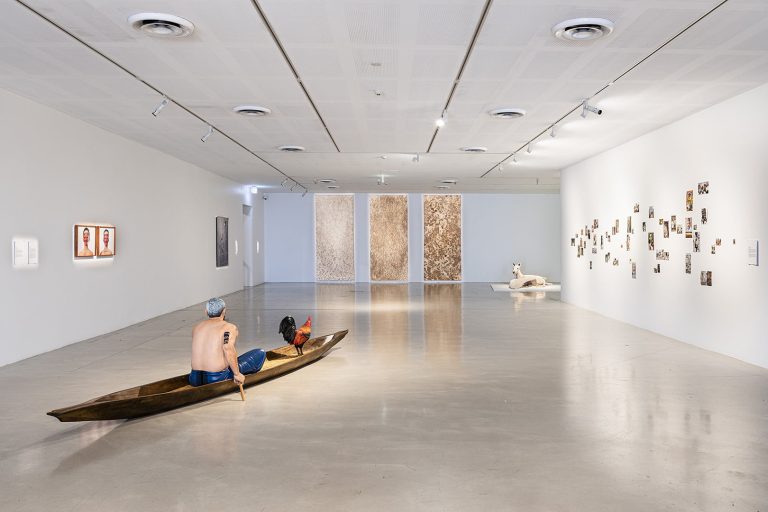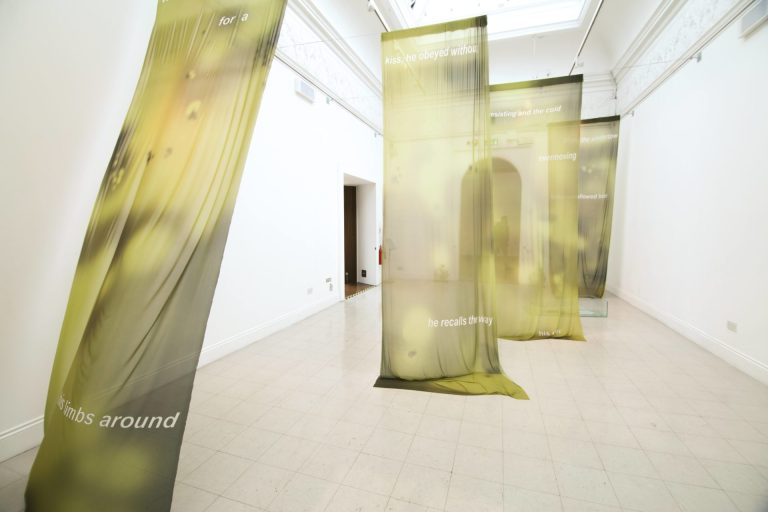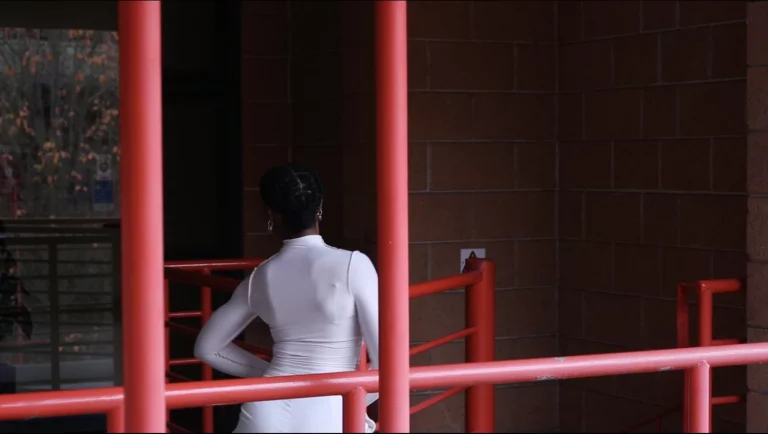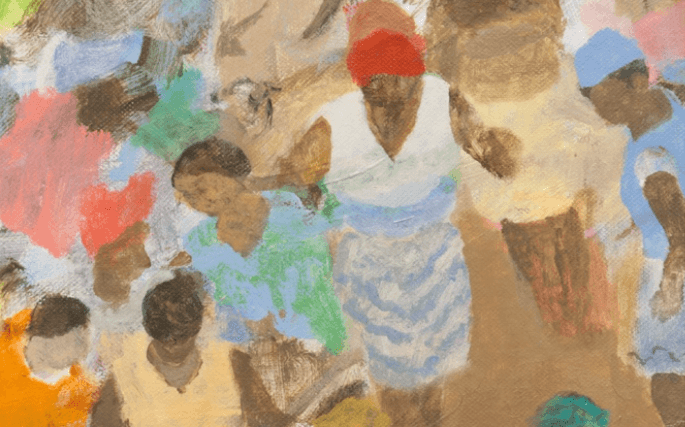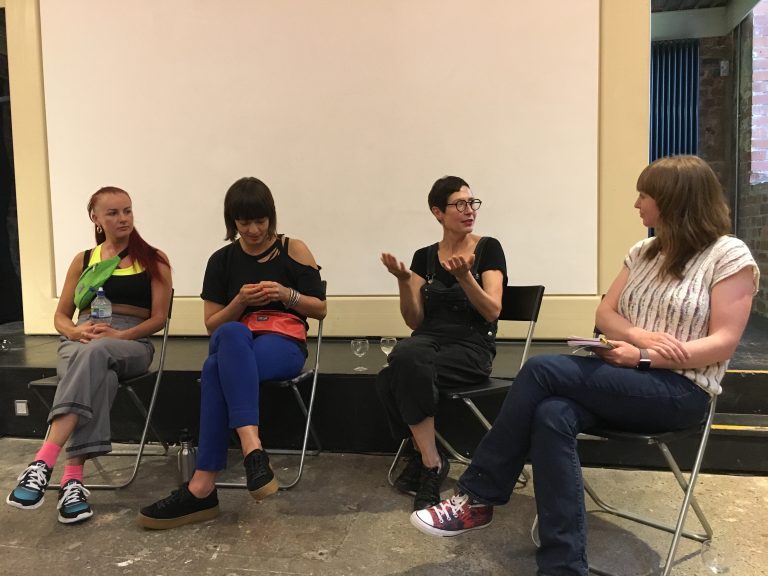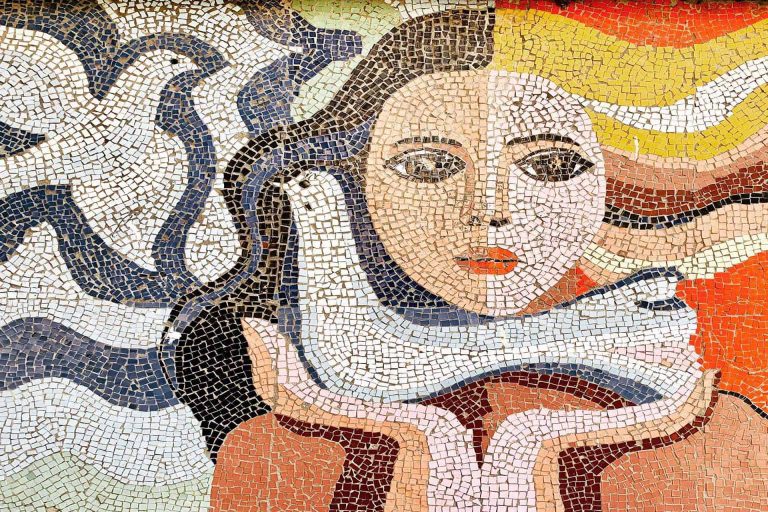Global Plantations Series
Shiraz Bayjoo, Extraordinary Quarantines No15. Image courtesy the artist.
Shiraz Bayjoo, Extraordinary Quarantines No15. Image courtesy the artist.
Dates:
6 Oct 2020 - 1 Sep 2020
Location:
Online
This programme is a series of artist-directed digital discussions featuring Shiraz Bayjoo, Jasmine Togo-Brisby and Sancintya Mohini Simpson held between June and September 2020. The series was developed by Anna Arabindan-Kesson and Shiraz in collaboration with International Curators Forum to contemplate the global forms and meanings of the plantation historically, and in our contemporary moment.
A Land of Extraordinary Quarantines
When Mark Twain visited Mauritius in 1896, he described it as a Land of Extraordinary Quarantines, referring to the fear of disease transmission associated with ships transporting indentured laborers to the island. The dual image of the island as a space of quarantine and a plantation animates artist Shiraz Bayjoo’s multi-media practice, and the archives-in formation he creates. In this conversation Shiraz and art historian Anna Arabindan-Kesson will reflect on the convergence of extraction and confinement, of humans and natural world, of labor and memory in his Indian ocean landscapes. How does art help us understand the afterlives of these colonial histories, in our current experience of confinement, and provide alternative possibilities for working through this uncertain present?
This programme is a series of artist-directed digital discussions featuring Shiraz Bayjoo, Jasmine Togo-Brisby and Sancintya Mohini Simpson held between June and September 2020. The series was developed by Anna Arabindan-Kesson and Shiraz in collaboration with International Curators Forum to contemplate the global forms and meanings of the plantation historically, and in our contemporary moment.
A Land of Extraordinary Quarantines
When Mark Twain visited Mauritius in 1896, he described it as a Land of Extraordinary Quarantines, referring to the fear of disease transmission associated with ships transporting indentured laborers to the island. The dual image of the island as a space of quarantine and a plantation animates artist Shiraz Bayjoo’s multi-media practice, and the archives-in formation he creates. In this conversation Shiraz and art historian Anna Arabindan-Kesson will reflect on the convergence of extraction and confinement, of humans and natural world, of labor and memory in his Indian ocean landscapes. How does art help us understand the afterlives of these colonial histories, in our current experience of confinement, and provide alternative possibilities for working through this uncertain present?
Dates:
6 Oct 2020 - 1 Sep 2020
Location:
Online
Inheritance: Jasmine Togo-Brisby’s Plantation Histories
In this recording, Anna and Shiraz speak with artist Jasmine Togo-Brisby about her research and practice as it relates to an ongoing engagement with the history of the enslavement of South Sea Islanders on Australian sugarcane plantations in the 19th century, and the contemporary legacy and impact of the Pacific’s slave trade. The conversation addresses the generational reality of the plantation as home, the capacity of the archive to render plantation histories both visible and invisible, and the ways in which both Jasmine and Shiraz excavate family and public archives as a means of formulating new visual languages through which to make public these narratives.
View Transcript
Sites of Resistance, Sites of Care: A Conversation with Sancintya Mohini Simpson
In this recording, Anna and Shiraz speak with Brisbane-based artist and researcher Sancintya Mohini Simpson, a descendent of indentured labourers sent from India to South Africa to work on colonial sugar plantations, whose practice addresses gaps and silences in the colonial archive and is engaged in wider narratives surrounding the indenture diaspora community. This conversation takes up the plantation as a site of resistance and connection, and the history of migration as a continual one. Sancintya speaks about the poetics of memory and the impossibility of the archive, the latter of which is created both intentionally through strategies of care and respect and as a consequence of lost languages and histories. Refusing Western expectations around the archive, Sancintya and Shiraz draw attention to the complexity of memorialising the stories and images of indentured labourers and presenting histories of trauma to an audience.
View Transcript
Artists Q&A with Shiraz Bayjoo, Jasmine Togo-Brisby & Sancintya Mohini Simpson
View TranscriptExplore Further
Explore Further


